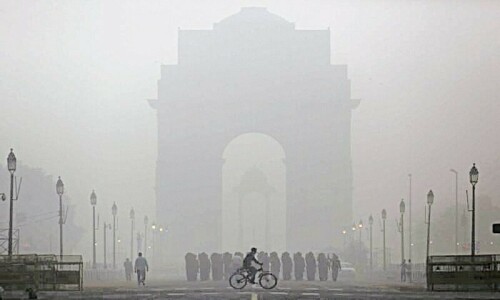SYDNEY: Untouched natural forests store three times more carbon dioxide than previously estimated and 60 per cent more than plantation forests, said a new Australian study of “green carbon” and its role in climate change.
Green carbon occurs in natural forests, brown carbon is found in industrialised forests or plantations, grey carbon in fossil fuels and blue carbon in oceans.
Australian National University (ANU) scientists said that the role of untouched forests, and their biomass of green carbon, had been underestimated in the fight against global warming.
The scientists said the UN’s Intergovernmental Panel on Climate Change (IPCC) and the Kyoto Protocol did not distinguish between the carbon capacity of plantation forests and untouched forests.
Yet untouched forests can carry three times the carbon presently estimated, if their biomass of carbon stock was included, said the ANU report released on Tuesday.
Currently, forest carbon storage capacity is based on plantation forest estimates.
The report “Green Carbon, the role of natural forests in carbon storage” said a difference in the definition of a forest was also underestimating the carbon stock in old-growth forests.
The IPCC defines a forest as trees taller than 2 metres (six feet) and a canopy cover greater than 10 percent, but in Australia a forest was defined as having trees taller than 10 metres (33 feet) and a canopy cover greater than 30 percent.
The report said southeast Australia’s unlogged forests could store about 640 tonnes per hectare, yet the IPCC estimate put it at only around 217 tonnes of carbon per hectare.
The scientists estimated that around 9.3 billion tonnes of carbon can be stored in the 14.5 million hectares of eucalypt forests in southeast Australia if they are left undisturbed.
The IPCC estimates only one third of this capacity and only 27 percent of the forests’ biomass carbon stock.
Not only did natural forests store more carbon but because they remained untouched, they stored the carbon for longer than plantation forests which were cut down on a rotation basis.
The report found that “natural forests are more resilient to climate change and disturbances than plantations”.—Reuters













































Dear visitor, the comments section is undergoing an overhaul and will return soon.